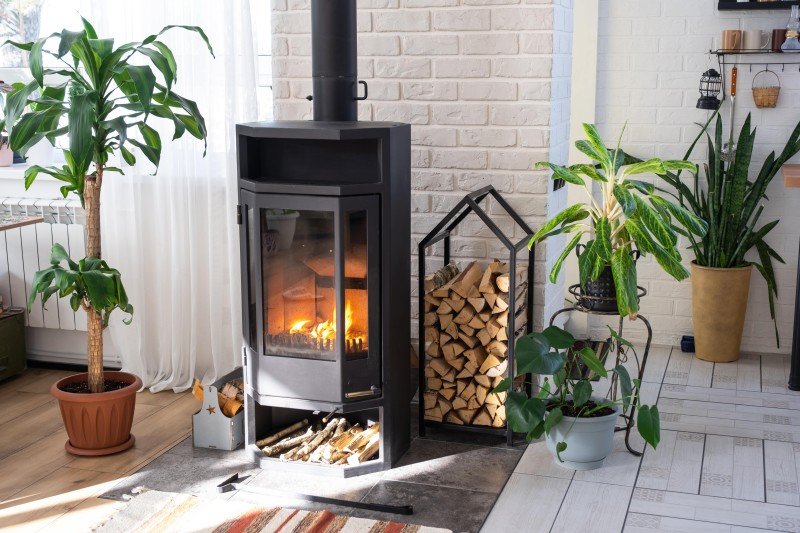A Comprehensive Guide to Buying Fireplaces in the UK
Fireplaces have long been a centerpiece in homes, offering both warmth and visual appeal. In the UK, the varied environment makes fireplaces an integral function in lots of houses. Whether one is trying to find a practical heating option or a trendy focal point, comprehending the various kinds of fireplaces and the factors to consider when making a purchase is crucial. This short article will offer a detailed overview of the types of fireplaces offered, factors to consider before buying, and responses to often asked concerns.
Kinds of Fireplaces
When thinking about the purchase of a fireplace, one must comprehend the huge variety of options readily available. Here's a breakdown of the typical kinds of fireplaces in the UK:
| Type of Fireplace | Description | Pros | Cons |
|---|---|---|---|
| Open Hearth | Traditional fireplace; wood-burning. | Classic appeal, great heat distribution. | Ineffective, requires more upkeep. |
| Wood-Burning Stove | Enclosed wood-burning system created for efficiency. | High-efficiency heating, large variety of styles. | Needs area for wood storage, may need chimney lining. |
| Gas Fireplace | Uses natural or propane gas for heating. | Easy to utilize, low maintenance. | May need expert installation, can be less warm than wood. |
| Electric Fireplace | Utilizes electrical power to develop heat and flames. | Basic setup, does not need a chimney. | Normally less efficient for heating, may lack the atmosphere of genuine flames. |
| Bioethanol Fireplace | Burns bioethanol for a clean-burning flame. | No venting required, modern design. | Fuel can be pricey, less heat output. |
| Pellet Stove | Utilizes compressed wood or biomass pellets. | Effective and eco-friendly. | Needs electricity to run, needs regular feeding and cleaning. |
Considerations Before Buying a Fireplace
Before devoting to the purchase of a fireplace, numerous crucial factors must be taken into consideration:
- Purpose: Determine whether the fireplace will serve primarily for heating or as an aesthetic addition to the space.
- Type of Fuel: Consider the type of fuel that best matches your requirements-- wood, gas, electricity, or alternative choices.
- Setup Costs: Assess the overall installation expense, which might include chimney work, flue setup, or additional modifications to the home.
- Area Availability: Check the area readily available and guarantee that the chosen fireplace fits conveniently within the designated area.
- Style and Design: Choose a style that matches the existing decor of your home, whether modern, rustic, or traditional.
- Upkeep: Understand the maintenance requirements related to each kind of fireplace. For instance, wood-burning alternatives might need regular cleansing of flues and chimneys.
- Energy Efficiency: Assess the energy efficiency of the fireplace, particularly if it will act as the main heating source.
- Regional Regulations: Be mindful of local regulations and standards concerning installations, especially for wood-burning and gas appliances.
FAQs about Buying Fireplaces in the UK
1. What is the very best kind of fireplace for an environmentally friendly home?
Response: A wood-burning range or a pellet range can be great environment-friendly alternatives, as they use eco-friendly resources. Bioethanol fireplaces are likewise clean and produce no harmful emissions.
2. Do I need a chimney for a gas fireplace?
Response: Most gas fireplaces require venting to the outdoors, which can be through an existing chimney or through a direct vent system that vents through the wall.
3. How do I determine the ideal size of fireplace for my room?
Answer: The size will depend upon the room's square footage and the type of fireplace. Generally, a specialist can compute the BTUs (British Thermal Units) required based upon the room size.
4. What is the average cost of setting up a fireplace in the UK?
Answer: Installation expenses can differ commonly depending upon the type of fireplace and its intricacy, ranging from ₤ 500 for electric fireplaces to ₤ 5,000 for some custom setups of wood stoves or gas units.
5. Are electric fireplaces safe to utilize?
Answer: Yes, electric fireplaces are normally really safe, as they do not produce genuine flames or emissions. Nevertheless, as with any electrical home appliance, they need to be used according to producer standards.
The decision to buy a fireplace in the UK is diverse and depends on numerous aspects, consisting of design, efficiency, function, and installation requirements. By comprehending Fireplaces Deals of fireplaces and assessing personal requirements and choices, one can make an educated choice that boosts their home and experience. With the information provided, potential buyers can embark on their journey to find the best fireplace that integrates functionality with the comfort and warmth that this ultimate feature offers.
In summary, buying a fireplace is more than merely picking a heating choice; it is about adding character to a home while guaranteeing convenience for years to come.

